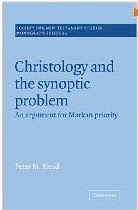This re-examines biblical divorce teaching in the light of discoveries in the Ancient Near East, Jewish documents from 5th C BC to 5th C AD and Graeco-Roman legal documents. The legal terminology in early rabbinic debates about a new form of "Any Cause Divorce" in Dt.24.1 are mirrored in the debates with Jesus who agreed with the Shammaite conclusion that Dt.24.1 refers to "nothing except immorality" so he rejected the Hillelite no-fault divorce for "Any Cause". Judaean Desert and Karaite documents show that the three rights in Ex.21.10-11 (food, clothing and marital love) were grounds for divorce in early Judaism, the details of which are discussed in rabbinic texts. Jesus was not asked about these grounds and said nothing, though Paul is not silent - in 1.Cor.7 he appears to assume these are fundamental rights within marriage. This historical context suggests that both Jesus and Paul affirmed the OT teaching about specific grounds for divorce against the no-fault divorce of Jewish revisionists and Roman law respectively.
Divorce and Remarriage in the Bible: the social and literary context
This re-examines biblical divorce teaching in the light of discoveries in the Ancient Near East, Jewish documents from 5th C BC to 5th C AD and Graeco-Roman legal documents. The legal terminology in early rabbinic debates about a new form of "Any Cause Divorce" in Dt.24.1 are mirrored in the debates with Jesus who agreed with the Shammaite conclusion that Dt.24.1 refers to "nothing except immorality" so he rejected the Hillelite no-fault divorce for "Any Cause". Judaean Desert and Karaite documents show that the three rights in Ex.21.10-11 (food, clothing and marital love) were grounds for divorce in early Judaism, the details of which are discussed in rabbinic texts. Jesus was not asked about these grounds and said nothing, though Paul is not silent - in 1.Cor.7 he appears to assume these are fundamental rights within marriage. This historical context suggests that both Jesus and Paul affirmed the OT teaching about specific grounds for divorce against the no-fault divorce of Jewish revisionists and Roman law respectively.
Subscribe to:
Post Comments (Atom)













No comments:
Post a Comment